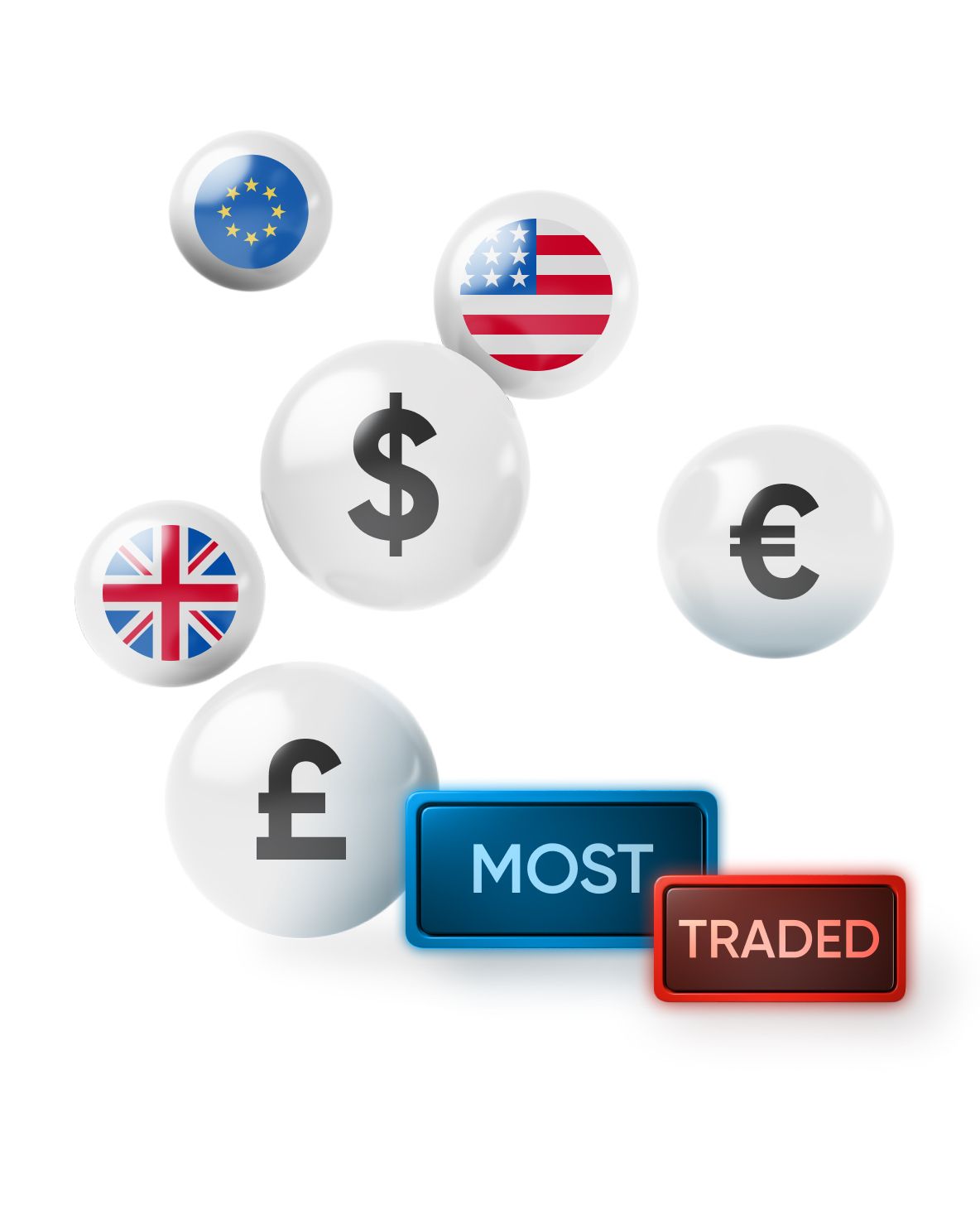Discover the most traded currencies in the world. Go long or short with CFDs on the most traded forex pairs including EUR/USD, GBP/USD and USD/JPY.

The term ‘forex’ is short for foreign exchange. Forex trading refers to the process of buying and selling international currencies, with the objective of making a profit from fluctuations in the exchange rates between them. This can be undertaken through financial derivative products such as leveraged CFDs. Trading on leverage is risky.
The forex market is a decentralised global market for trading currencies. It’s the largest, most highly-liquid financial market in the world, with around $7 trillion in daily trading volume as of 2024. In the forex market, currencies are traded in pairs, with some of the most commonly traded pairs EUR/USD, USD/JPY and GBP/USD. Participants in the forex market range from institutions such as central banks and hedge funds to individual retail traders, and the market operates 24 hours a day, five days a week.
The forex market is primarily shaped by five major players: Citigroup, Deutsche Bank, Barclays, JP Morgan, and UBS. Their dominant position reflects their pivotal role in setting trends and liquidity in the forex market. However, there are many individual retail traders around the world who participate in the forex market too.
Forex trading gives traders access to a highly liquid market with the potential for significant profits due to leverage and market volatility. However, this volatility can lead to substantial losses, and the use of leverage amplifies both gains and losses. This can make it a high-risk endeavour for both experienced and beginner traders alike.
Yes, you can start trading forex with $100. In fact, on Capital.com, the minimum deposit is just $20.